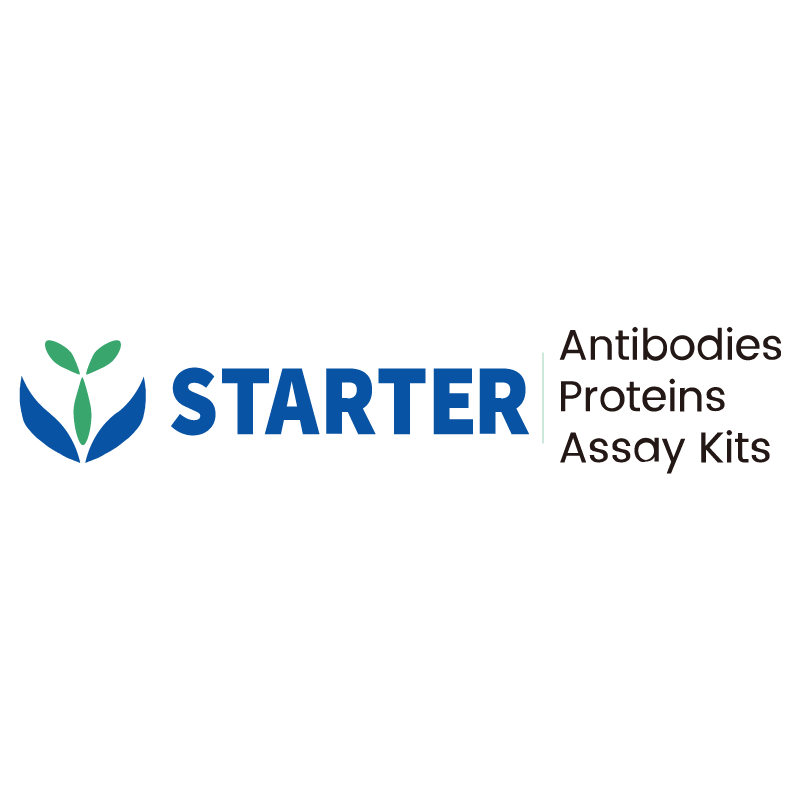Standard curve
Example of Rat IgE standard curve in Assay Diluent #10.
Product Details
Product Details
Product Specification
| Antigen | IgE |
| Immunogen | Recombinant Protein |
| Antibody Type | Recombinant mAb |
| Reactivity | Rt |
| Purification | Protein A |
| Stability & Storage | 2 to 8 °C as supplied. |
Kit
| Precision | Intra-assay: 2.6%; Inter-assay: 4.2% |
| Sample type | Cell culture supernatant, Serum, Plasm |
| Assay type | Sandwich (quantitative) |
| Sensitivity | 0.137 ng/ml |
| Range | 0.39 ng/mL – 25 ng/mL |
| Recovery | Cell culture supernatant: 88% Serum: 96% Plasm: 79% |
| Assay time | 60 minutes |
| Species reactivity | Rat |
Background
Immunoglobulin E (IgE) is a key antibody isotype integral to allergic reactions and defense against parasitic infections. Structurally, IgE is composed of two heavy chains (ε-chains) and two light chains (κ or λ), forming a monomeric Y-shaped configuration stabilized by disulfide bonds. The ε-heavy chain contains four constant domains (Cε1–Cε4), with the Fc region (Cε3–Cε4) enabling high-affinity binding to FcεRI receptors on mast cells and basophils. Extensive glycosylation of IgE enhances its stability and modulates receptor interactions.
Functionally, IgE initiates type I hypersensitivity responses by crosslinking allergens to FcεRI-bound IgE on mast cells, triggering degranulation and release of inflammatory mediators (e.g., histamine, cytokines). It also contributes to antiparasitic immunity by promoting eosinophil-mediated destruction of helminths.
Cross-Species Homology: Rat IgE exhibits high structural homology with murine and human IgE, particularly in conserved regions of the ε-chain. However, species-specific variations in glycosylation and epitope accessibility necessitate species-specific assays for accurate detection.
Clinical and Experimental Significance of IgE Levels: Elevated IgE: Correlates with allergic diseases (e.g., asthma, atopic dermatitis), parasitic infections, or hypersensitivity disorders. Suppressed IgE: May indicate immunosuppressive therapies, genetic deficiencies (e.g., hyper-IgM syndrome), or immune dysfunction.
Applications of the Rat IgE ELISA Kit: This OneStep Rat IgE ELISA kit is designed for rapid and precise quantification of IgE in serum, plasma, or cell culture supernatants.
Advantages of this OneStep ELISA Kit Design:
Simplified Workflow: Combines sample incubation and detection in a single step, eliminating intermediate washing and reducing hands-on time.
High Efficiency: Achieves results within 1 hours, ideal for high-throughput studies or urgent diagnostics.
Enhanced Precision: Minimizes procedural variability and cross-contamination risks through optimized reagent formulation.
Broad Compatibility: Validated for diverse biological matrices, ensuring flexibility in experimental design.
This kit’s streamlined protocol and robust performance make it an indispensable tool for researchers and clinicians seeking reliable IgE quantification in time-sensitive or resource-limited settings.
Picture
Picture
ELISA
Linearity
The concentrations of Rat IgE were measured and interpolated from the target standard curves and corrected for sample dilution.
#1 sample is undiluted samples are as follows: Rat Serum was 160fold dilution. The interpolated dilution factor corrected values are plotted. The mean target concentration was determined to be 665.65 ng/mL in Rat Serum.
#2 sample is undiluted samples are as follows: Rat Plasma was 8fold dilution. The interpolated dilution factor corrected values are plotted. The mean target concentration was determined to be 12.39 ng/mL in Rat Plasma.
To assess the linearity of the assay, three samples were spiked with high concentrations of Rat IgE in various matrices and diluted with the appropriate Calibrator Diluent to produce samples with values within the dynamic range of the assay.
Specificity
Test the different specificity of IgE standards and serum: sample #1 is Mouse IgE (100 ng/mL); sample #2 is Rat IgE (100 ng/mL); sample #3 is Human IgE (100 ng/mL). sample #4 is Mouse serum; sample #5 is Rat serum; sample #6 is Human serum; sample #7 is blank.
Protocol Diagram


